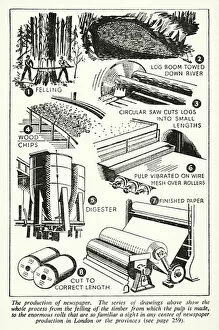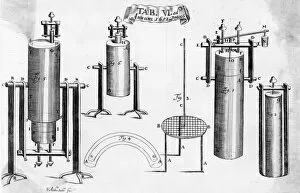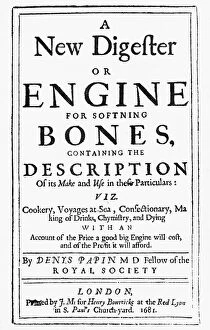Digester Collection
Caption: The Revolutionary Digester: Denis Papin's Ingenious Invention Transforms Industries Denis Papin, a renowned French physicist and chemist
All Professionally Made to Order for Quick Shipping
Caption: The Revolutionary Digester: Denis Papin's Ingenious Invention Transforms Industries Denis Papin, a renowned French physicist and chemist, revolutionized various industries with his groundbreaking invention known as the "Papins Bone Digester. " This remarkable device played a pivotal role in transforming the production of newspapers and even found its application in culinary arts. In the early 1680s, Papin introduced his innovative digester to the world. It was primarily designed for softening bones used in papermaking. With this new technology, newspaper production witnessed a significant boost as it facilitated efficient extraction of pulp from bones through a process called litho. Picture No. 11067440 showcases an engraving depicting this very technique being employed at a pulp-digesting plant in a paper mill. However, Papin's bone digester did not stop at revolutionizing the paper industry alone; it also made its way into kitchens across Europe. A cookbook titled "A New Digester" published in 1681 featured recipes that utilized this ingenious machine for cooking purposes. The title page of this historic cookbook (Picture No. 11067439) proudly displayed Papins Bone Digester as an essential tool for softening food ingredients. The impact of Denis Papin's inventions extended beyond his lifetime, inspiring further advancements by other scientists and engineers alike. Steam digesters based on his designs emerged around 1720 (STEAM DIGESTER). These devices harnessed steam power to create high-pressure environments ideal for cooking or processing food efficiently. Denis Papin's contributions continue to be celebrated today as he remains one of history's most influential inventors and thinkers. His relentless pursuit of innovation forever changed how we produce newspapers and cook our meals – leaving an indelible mark on both industrial processes and culinary practices worldwide.










